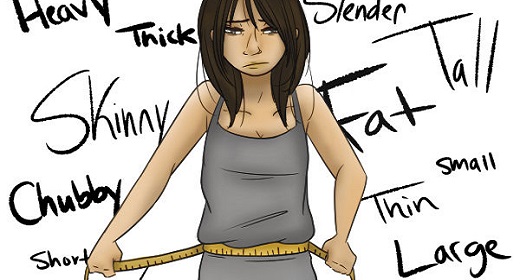by B.J. Hardick, D.C.: I’m going to alienate some friends here, but science is science: A massive study earlier this year found that being vegan or vegetarian could benefit you in a lot of different ways, but…

it won’t help you live longer.
Researchers tracked 243,096 men and women with an average age of 62. A six-year follow-up found that meat eaters and folks who followed a vegetarian diet or some version thereof (including vegetarianism “flirters”) lived the same amount of time. Even after researchers adjusted for other factors like age, smoking, and diseases like type 2 diabetes, they found no evidence that forgoing meat could help you live longer.
What diet will help extend your life span?
Other studies came to the same conclusion. In fact, data from three cohort studies published earlier this year—with around 200,000 American health workers—found a vegetarian diet based on refined grains and other unhealthy foods could actually increase your risk for heart disease. Upon closer inspection, researchers found those eating a plant-based diet rich in fruits, vegetables, and healthy fats were less likely to get heart disease than people eating stuff like potatoes, refined grains, and sugar-loaded foods.
In other words, eating meat doesn’t matter as much as eating quality food.Unfortunately, there’s still a lot of confusion and contention about this: “It’s not easy to know for sure what is the ‘truth.’ Vegan diet studies show they help with weight loss, reverse diabetes, and lower cholesterol. Diets high in fat and animal protein seem to do the same thing,” writes Dr. Mark Hyman in Eat Fat, Get Thin. “Essentially, each scientist (or even each person reading the research) with a point of view adheres to his or her position with near religious fervor. And each can point to studies validating his or her perspective.”
Do vegans consume more vitamins and minerals?
Consider nutrients: Do plant-based eaters get more than meat eaters? One cohort study looked at 65,429 men and women between 20 and 97 with various dietary habits and backgrounds, including many non-meat eaters and meat eaters. Researchers compared overall nutrient intake and found vegetarians and vegans had the highest intakes of fiber, vitamin B1, folate, vitamin C, vitamin E, and magnesium. But they had the lowest intakes of retinol, vitamin B12, vitamin D, calcium, and zinc. Meat eaters got some of these nutrients, but they also consumed less fiber (bad) and more saturated fat (good or bad, depending on the source).
Another study found that in general, vegans and vegetarians ate more vegetables and legumes and less junk food than meat eaters. (They also took more supplements.) In other words, it might not be eliminating meat that creates longevity; it could be increased intake of nutrient-dense plant foods.
What role do lifestyle factors play here?
One study looked at the effects of lifestyle and food on chronic disease among vegetarians and vegans compared with meat eaters. Researchers found meat eaters had more chronic diseases like obesity, hypertension, and type 2 diabetes. Unfairly, higher saturated fat and cholesterol intake got the blame for this increased disease risk. But interestingly, meat eaters who practiced healthy lifestyle factors—meaning they didn’t smoke or drink excessive alcohol, they exercised regularly, and they consumed plenty of fruits and vegetables—had results similar to those of vegetarians and vegans who also practiced healthy lifestyle factors.
From these and other studies, we can put together a more accurate picture on longevity. Research generally finds that vegetarians and vegans engage in healthier lifestyle practices than other groups, including meat eaters. (But that doesn’t mean they all do.) From that perspective, one study found little difference in death rates between vegetarians and vegans and those who consume meat. Meat eaters who consumed more fruits and vegetables, didn’t smoke, and exercised regularly had lower mortality rates than those who didn’t maintain these and other lifestyle factors.
How can I live and eat in a way that promotes longevity?
Some studies show that consuming fruits and vegetables decreases stroke risk and lowers ischemic heart disease mortality, while increasing cardiovascular health regardless of whether or not you eat meat. Others show that lots of fruits and vegetables along with regular exercise influence cardiovascular health, blood pressure, triglycerides, and cholesterol levels. It can be overwhelming, but all this information isn’t as confusing and contradictory as it seems when you focus on one idea: Eating more plant foods and living healthier, not necessarily entirely avoiding meat, seems the smarter path to longevity.
With that said, regardless of whether or not you eat meat, I’ve found these universal truths can bridge our differences and help us all become healthier:
1. Eat more plant foods.
Make about 75 percent of your plate plant foods like leafy and cruciferous vegetables. Regardless of whether you’re vegan, vegetarian, or animal-based, make that other 25 percent protein- and healthy fat-rich foods.
2. Just eat real food, period.
Eat foods that are as close to nature as possible. If you couldn’t hunt, pluck, gather, or otherwise find it in the wild, step far, far away. If your great-grandmother wouldn’t recommend it, put it back. (And if you eat animal foods, eat the highest-quality foods you can afford!)
3. Stress less.
Humans weren’t designed to hunch over a computer 10 hours a day or take the hectic train or bus for an hour each day. You can’t eliminate stress, but you can minimize it. Step away, breathe deeply, do some yoga or meditation, and de-21st century.
4. Sleep more.
Whether you’re the staunchest vegan or hard-core carnivore, you’re probably not getting enough quality sleep. Happy hour happens in your bed: Aim for eight hours nightly of deep, restorative sleep.
5. Find exercise you can sustain.
Maybe that’s an hour and a half of yoga, an hour of brisk walking, or an adrenaline-rushing 20-minute-burst training session. Doesn’t matter; just do it and do it regularly! Regardless of whether you love or avoid meat, I’ve got plenty of other strategies to help you lose weight, feel your best, and maintain stellar bone health.

















































